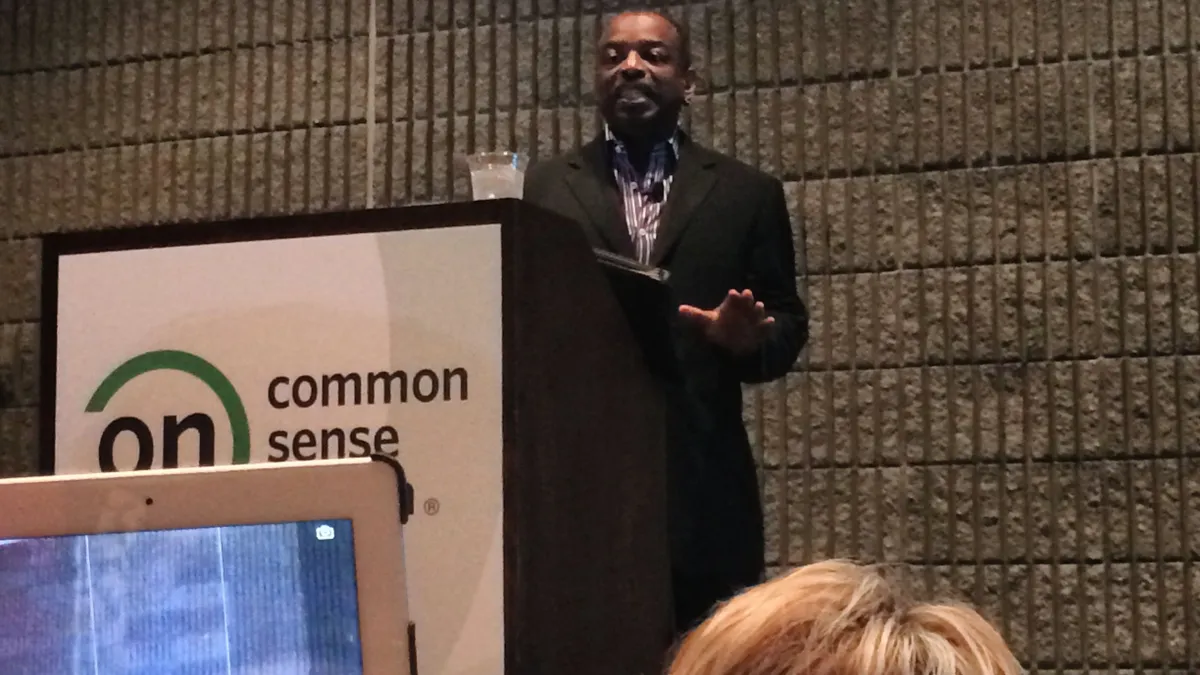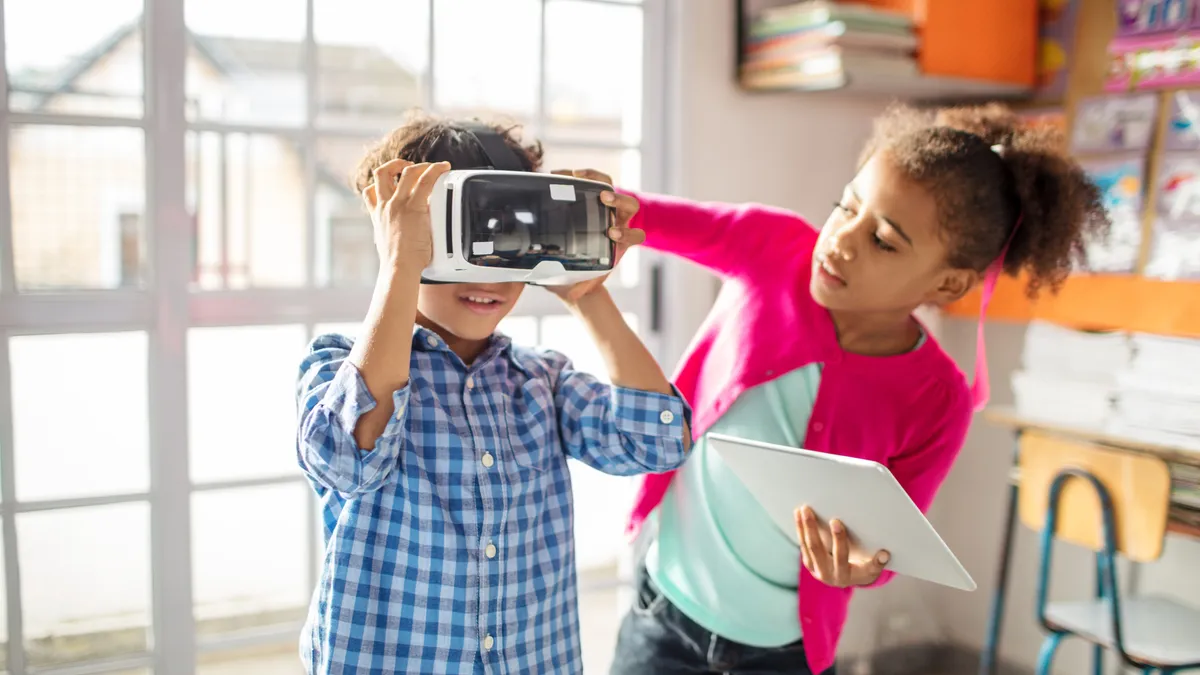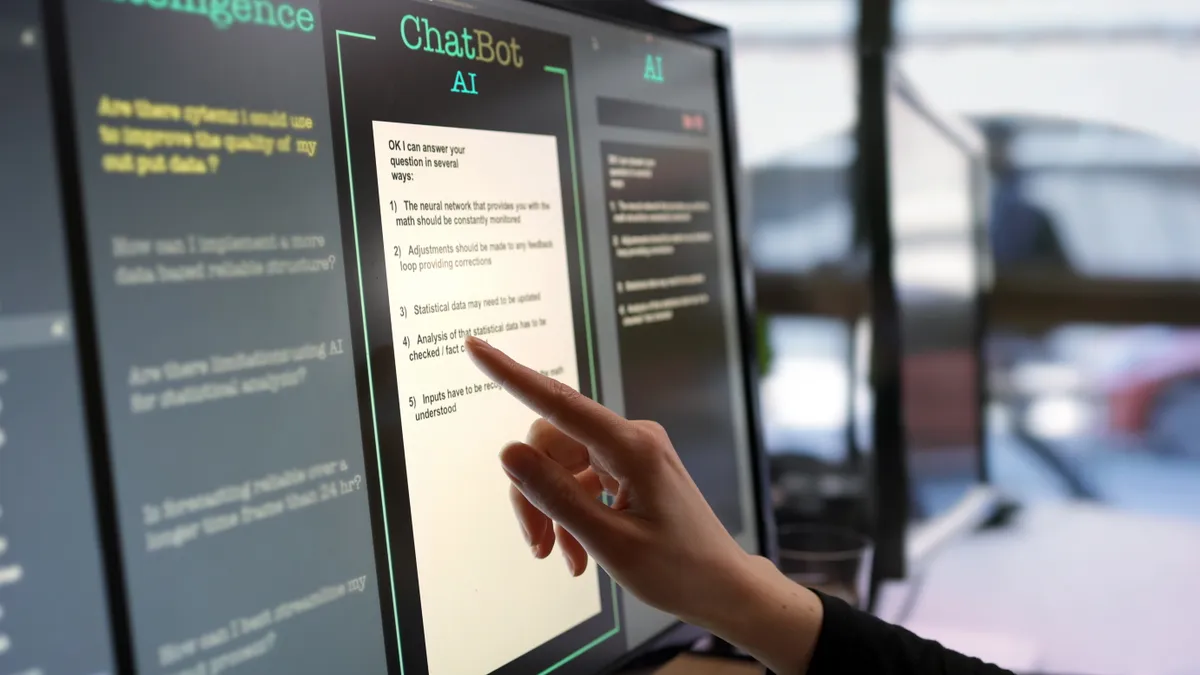Educators packed a ticketed spotlight session sponsored by Common Sense Media at the 2014 International Society for Technology in Education (ISTE) Conference. Drawing them to this third floor room at the Georgia World Congress Center in Atlanta?
Reading Rainbow host LeVar Burton.
Reading Rainbow debuted on PBS in June 1983, running 23 years until its cancelation in November 2013— but we'll get to that shortly. For as many people as there are who know the show's host for his role as Kunta Kinte in "Roots" or Lt. Commander Geordi La Forge on "Star Trek: The Next Generation," Burton is known to countless more for hosting the Peabody and Emmy Award-winning show that, along with inspiring children to read, told them they could "go anywhere" and "be anything" by doing so.
Not content to let the show die, Burton, the son of an English teacher, took it upon himself to reintroduce Reading Rainbow to a new generation of children via an app for iPad and Kindle Fire, launched in 2012 by his company, RRKIDZ. After 36 hours, the free-to-download app — 100 books are available immediately, and hundreds more unlock with subscriptions set at $9.99 a month or $29.99 for six months — was iTunes' most-downloaded educational app. (Two books and a new video field trip are added every Friday.)
Setting out in May to expand access to the app even further with universal access on the Web, Android and other mobile operating systems, and gaming consoles, Burton launched a Kickstarter campaign that met its million-dollar goal in 11 hours. Additionally looking to develop a classroom version, to be offered sans-subscription fee to as many as 7,500 low-income classrooms, the campaign is now aiming for $5 million, with "Family Guy" creator Seth MacFarlane pledging to match donations up to $1 million.
During his 30-minute talk, Burton made four crucial points about education, technology, and the importance of fostering a love of reading in students. But you don't have to take our word for it — read on and find out.
1. Literature breeds the innovation of tomorrow
Burton told the crowd that fiction — specifically speculative fiction ("which is my fancy way of saying 'sci-fi,'" he joked) — invites readers to contemplate two of the most powerful words, in combination, in language: "What if?"
"There isn't an advancement that we have advanced, there isn't an invention that we have invented, there is nothing that we have come up with in this realm that did not begin in the space of emptiness and the application of 'What if?'" Burton told the crowd.
2. America must re-prioritize education before literacy gaps improve
One in four U.S. children is currently growing up to be functionally illiterate. Thirty-one percent of children entering fourth grade cannot read at level. Those children are at least three times less likely to graduate high school. These statistics should sit well with no one.
"I did not plan to talk about this, but I'm going to talk about it anyway," said Burton. "I am so happy that 'No Child Left Behind,' we are leaving it behind."
As he explained to Rolling Stone last week, "the shift in the governmental policy made a choice between teaching kids how to read and fostering a love of reading." Burton told the ISTE crowd that the last nearly 20 years have seen the nation spend the bulk of its coffers on war at the expense of education, sacrificing at least two generations of students. "There has been no money for education because we have been buying and building bombs, and that's just the purity of truth, as my grandmother would say," said Burton. "We need to re-prioritize in this nation what is important to us."
While national security is a concern, he said, it shouldn't come at the expense of future generations. And that future, as he presented in the Colbert Report video below, is scary:
3. America's reading gap is due largely to economics and ethnicity gaps
"Poor people don't have as much access to the kinds of materials, like books, that are going to incur a lifelong relationship with the written word," Burton continued.
Statistics show that minority students, and students learning English as a second language, don’t have the same proficiency coming into the classroom as their white peers. A quality education, Burton said, is what holds the power to level the playing field — and a relationship with the written word has a profound impact on a student's ability to achieve that education.
4. Technology is not the death of education
Reading Rainbow was originally supposed to be a summer television series, addressing the "summer slide" and the idea that kids were spending all of their time in front of the TV.
"The conversation back in the day was, 'Is television going to be the death knell for education?'" Burton said to laughter. "I thought, 'Wait a minute. Television offers us an amazing opportunity as a technology. Why? Because the engagement factor is solved. Kids have self-selected for what they want the point-of-purchase to be."
The show ultimately became one of the most-used TV resources in classrooms. "Over time, it was proven that children who watched Reading Rainbow were entertained, yes, and inspired by the books that they saw on the show, the other children they saw who were viewing books on the show, and the video field trips that took them to places that they had no idea existed in reality," he said. "Among those kids, their reading comprehension skills soared."
That initial debate over TV might sound familiar, by the way, as the same debate prominently surrounded mediums like video games and the Internet over the last two decades. Today, game-based learning and online learning are among the hottest topics of innovation in education. Consumer products not initially designed for the classroom can be adapted and made to work.
On another note, meeting children where they were — in front of the TV — when Reading Rainbow first launched is also exactly the reason Burton chose not to revive it on TV. Kids have chosen devices, whether they be tablets, smartphones, or game systems, as their preferred point of consumption now.
It's almost too fitting, as well, that Kickstarter, like PBS, is still "paid for by viewers like you."
This story is part of our newly expanding K12 coverage. If you would like to subscribe to the Education Dive: K12 newsletter, click here. You may also want to read Education Dive's look at 8 popular (and free) K-12 apps on iOS.























